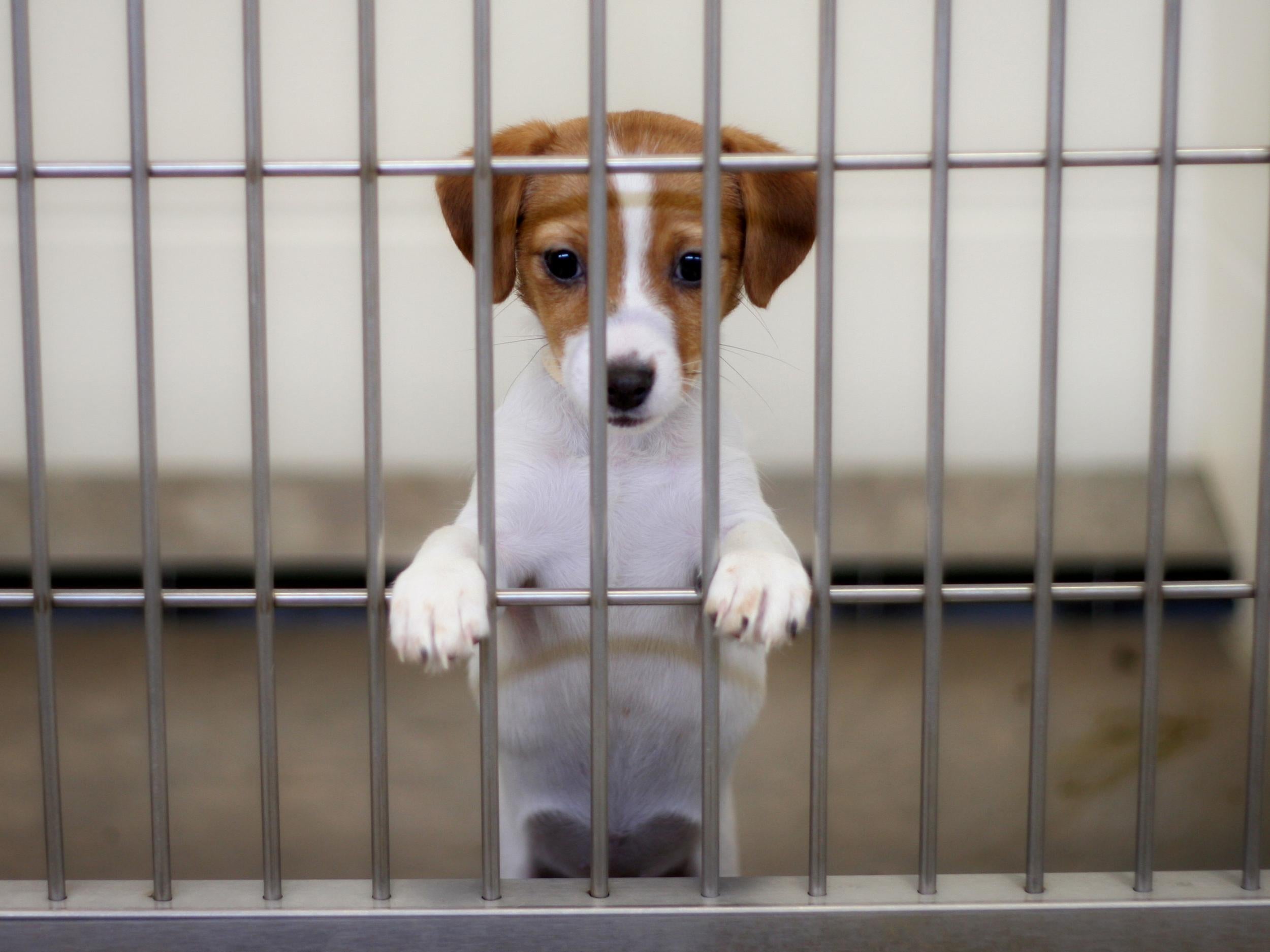California becomes first US state to sell only rescued animals in pet shops
Politician behind bill describes it as ‘big win for our four-legged friends’

Your support helps us to tell the story
From reproductive rights to climate change to Big Tech, The Independent is on the ground when the story is developing. Whether it's investigating the financials of Elon Musk's pro-Trump PAC or producing our latest documentary, 'The A Word', which shines a light on the American women fighting for reproductive rights, we know how important it is to parse out the facts from the messaging.
At such a critical moment in US history, we need reporters on the ground. Your donation allows us to keep sending journalists to speak to both sides of the story.
The Independent is trusted by Americans across the entire political spectrum. And unlike many other quality news outlets, we choose not to lock Americans out of our reporting and analysis with paywalls. We believe quality journalism should be available to everyone, paid for by those who can afford it.
Your support makes all the difference.California is set to become the first US state to ban the sale of cats, dogs and rabbits in pet shops unless they are from rescue centres.
The law, which takes effect from 1 January, was conceived as a way to crack down on so-called “kitten factories” and “puppy mills”.
Such “high volume” operations that breed animals for profit have been associated with inhumane conditions and long-term health problems for the animals.
Known as AB 485, the bill means pet shops will have to provide records of each animal’s origin or face a $500 (£391) penalty.
Californians will still be able to purchase non-rescue animals from private breeders.
The Pet Rescue and Adoption Act was originally introduced by assembly member Patrick O’Donnell and signed into law by California governor Jerry Brown in October 2017.
Mr O’Donnell said the law was a “big win for our four-legged friends”, and also for taxpayers, given the $250m (£196m) spent every year to house and euthanise shelter animals in the state.
The legislation requires each shop to maintain records on all dogs, cats and rabbits, and post “in a conspicuous location on the cage or enclosure of each animal” a sign outlining where they came from.
It also states shops must comply with laws that require animals to be spayed or neutered.
According to the American Society for the Prevention of Cruelty to Animals (ASPCA), more than 6.5 million pets are placed in shelters in the US every year, and 1.5 million are put down.
Judie Mancuso, president and founder of NGO Social Compassion in Legislation, welcomed the law when it was first suggested as “a bold step forward”.
However, the change was opposed by the American Kennel Club, which argued it would mean more people purchasing pets that were not a good match for them.
Critics think the new law would make it difficult for prospective owners to find popular breeds, noting that the genetic and medical histories of shelter animals are not always known. Others have suggested it could put shops out of business.
While California is the first state to enact a state-wide law, other areas have brought in similar legislation at a local level.
The move comes after the UK government confirmed the introduction of a similar ban on third-party puppy and kitten sales in England.
Under the plans, currently out to consultation, those wanting to buy pets under six months old will have to choose a rescue animal or visit a private breeder.
Dubbed “Lucy’s Law” after the case of a mistreated cavalier King Charles spaniel, the legislation was also intended to crack down on low animal welfare standards in the breeding industry.
Battersea’s chief executive Claire Horton welcomed the move against “unscrupulous puppy dealers lining their pockets with no regard for animal welfare”.
She said: “Properly enforced, this will help put an end to dogs being used as breeding machines and kept in shocking conditions.”
Join our commenting forum
Join thought-provoking conversations, follow other Independent readers and see their replies
Comments